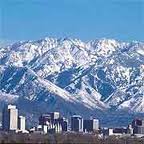Does not seem a difficult to answer clear questions that do not. But it is a question that always generates much debate. USC may find this interesting as well. And in the United States.UU., by these times still, because fears the downturn of the economy, which generates should be added you for workers fears that generate them FTA. Why American workers afraid to FTA? Two weeks ago, the renowned American economist, Larry Summers, wrote an article in the Financial Times on the matter. Larry Summers, a promoter of the free movement of capital around the world, was now worried about the impact of FTAS could have for American workers since it could affect them adversely limiting the ability of negotiation that possess and jeopardizing their sources of work.
But what is happening with the opinion of those Liberals such as Larry Summers advocated free trade? Devesh Kapur, Pratap Mehta and Arvind Subramanian in another article from the Financial Times explained with clarity. For liberal economists, free trade is beneficial because a proliferation of prosperity is generated through countries and although there were winners and losers, on balance the result was positive since the greater proportion of the population of both developed and developing countries would benefit but the increased competition facing the American economy is making change seem to economists than thought, as Summers, defended free trade. No longer see so clearly the benefits that agreements such as NAFTA produce in the American economy, since threats to American workers cannot them see. Summers now sees the growth of the emerging countries more as a threat than as an opportunity. Is it so? Is it true that the growth of emerging economies driven in part by the export sector is a threat to the United States.UU.? Actually there are several aspects to be tested. ES true that the promotion of trade agreements increases competition faced by U.



